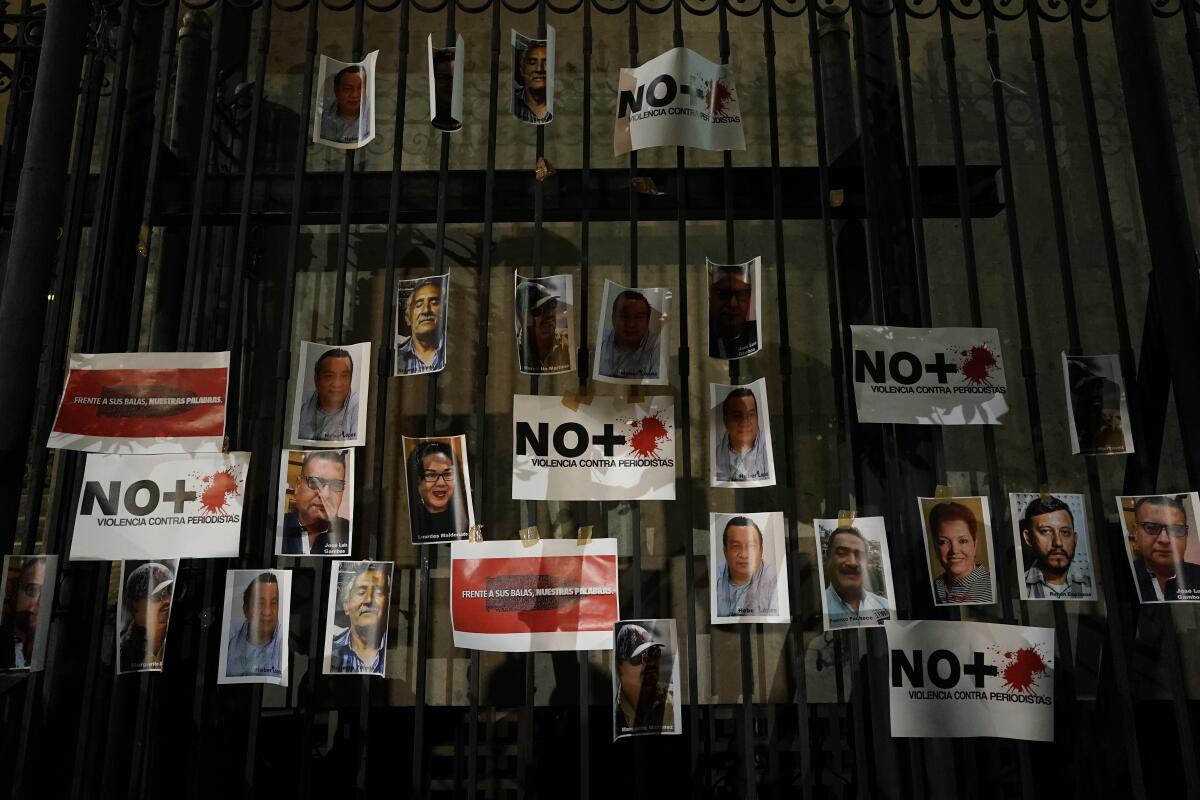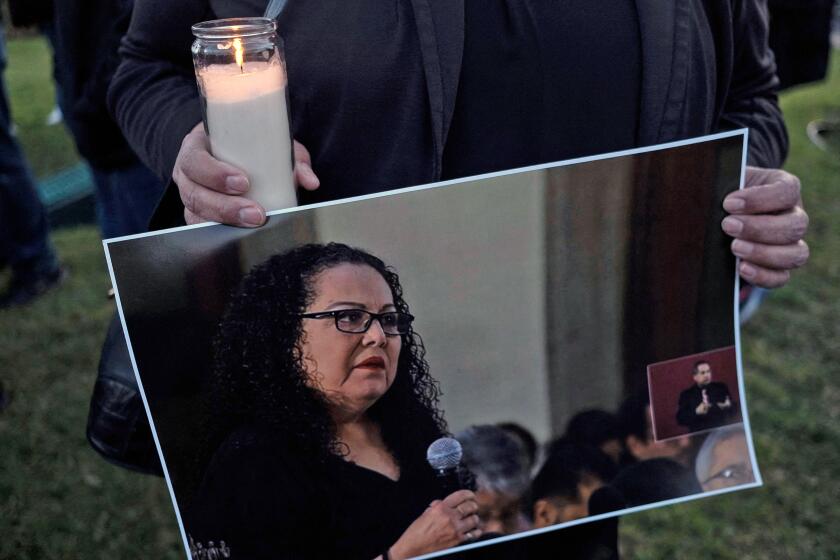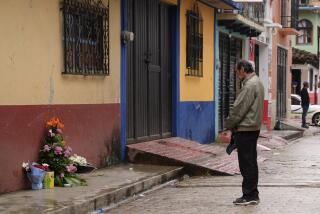Journalist killed in northern Mexico, the ninth this year

- Share via
MEXICO CITY — Another journalist was found dead in northern Mexico on Thursday, the ninth media worker killed in the country this year.
Prosecutors in Sinaloa state said the body of Luis Enrique Ramírez Ramos was found on a dirt road near the state capital, Culiacan.
Ramírez Ramos, 59, was the ninth reporter or photographer killed this year in Mexico, making the country the most dangerous place in the world for the news media outside war zones.
Ramírez Ramos’ news website, Fuentes Fidedignas, or Reliable Sources, said he had been abducted near his house.
The Committee to Protect Journalists said it lamented the killing and “calls on authorities to urgently investigate this act.”
Ramírez Ramos is listed as “founding director” of the website, which has reported relatively little on the drug cartel violence that plagues Sinaloa, which is home to the cartel of the same name.
The slaying of Armando Linares adds to the unprecedented spate of killings that has made Mexico the most dangerous place in the world for journalists.
Fuentes Fidedignas did, however, report on local political disputes, which is often a risky subject for reporters in provincial Mexico.
But the website also includes a section on “good news” about Sinaloa, and in its mission statement says “just as we denounce vices and corruption, we also cover the industrious, hardworking and generous nature that our good people give the state.”
Francisco Chiquete, a fellow reporter in Culiacan, said “Luis Enrique Ramírez was a very professional and capable journalist” and noted he had expressed fears about retaliation for his work as long ago as 2015. However, Chiquete said he wasn’t aware of any more recent threats against his colleague.
Many killings of journalists in recent years in Mexico have been blamed on drug cartels, and journalists in the most violent cities, like Culiacan, often avoid the topic of cartels for their own safety.
But in a 2015 interview with MVS radio station after the killing of fellow reporter Humberto Millan, Ramírez Ramos said, “I don’t write about narcos, I speak neither good nor ill of the narcos. Humberto Millan didn’t either, and that was not enough to keep him alive and working.”
Three suspects are arrested in the slaying of Lourdes Maldonado López, the second journalist killed in a week in Tijuana last month.
“What is happening? Humberto Millan and I only write about politicians, and now it turns out that we can’t write about politicians, either, so what are journalists in Sinaloa going to write about?” he said at the time.
Mexico’s state and federal government have been criticized for neither preventing the killings nor investigating them sufficiently.
While President Andrés Manuel López Obrador has promised a “zero impunity” program to investigate the killings, on Thursday the head of that program listed only six killings of journalists this year.
And the president continues his frequent verbal attacks on journalists whose stories he dislikes, calling them “conservatives” and “mercenaries,” and using information from supporters — and apparently tax agencies — to publicize the income of reporters he dislikes.
Media groups say López Obrador’s daily criticisms of journalists make them more vulnerable to violence.
In February, the Inter American Press Assn. called on the president to “immediately suspend the aggressions and insults, because such attacks from the top of power encourage violence against the press.”
And in March, the European Union approved a resolution that “calls on the authorities, and in particular the highest ones, to refrain from issuing any communication which could stigmatize human rights defenders, journalists and media workers, exacerbate the atmosphere against them or distort their lines of investigation.”
More to Read
Sign up for Essential California
The most important California stories and recommendations in your inbox every morning.
You may occasionally receive promotional content from the Los Angeles Times.












